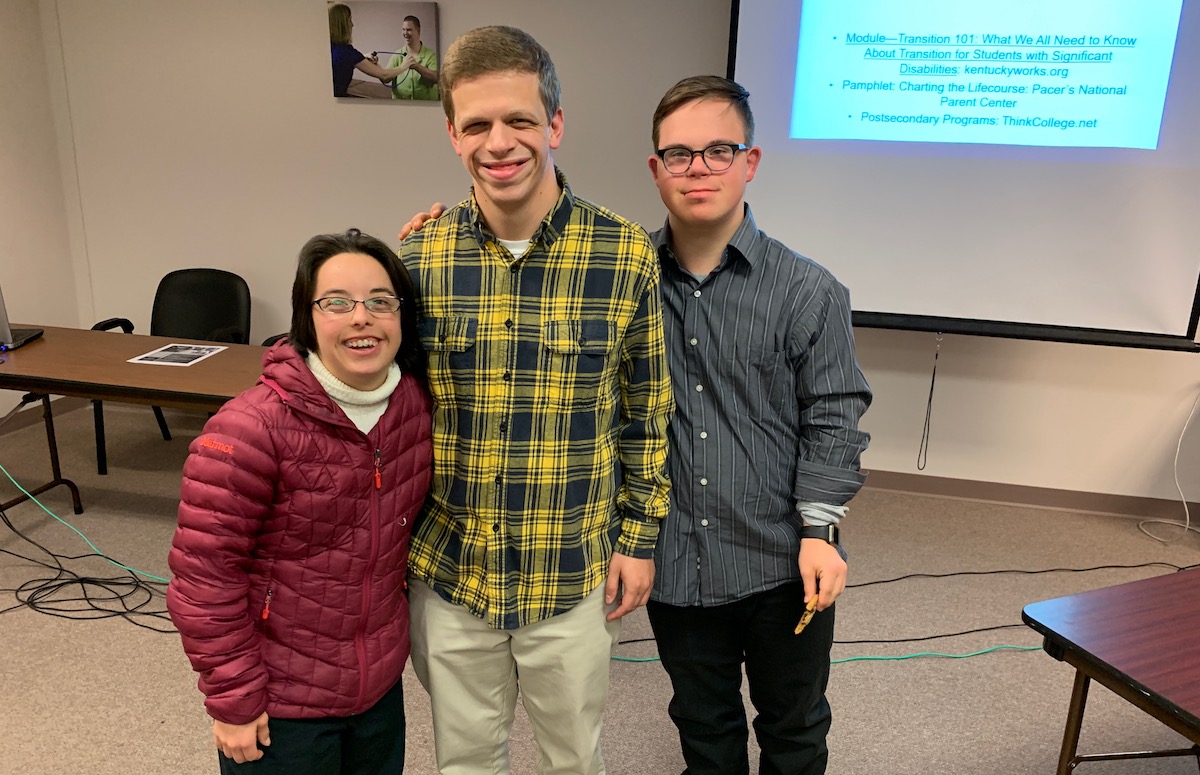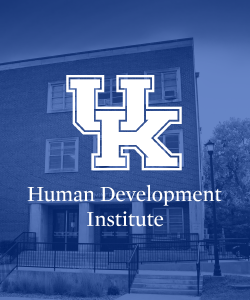By Amanda Kelley Corbin
What are your hopes and dreams for your son or daughter’s future? It’s something every parent has pondered. And while the question is simple enough, the answers can be as complex and diverse as our children are. This is especially true when a child has a disability.
“Every child deserves to develop their talents and follow their dreams,” said Stella Beard, Assistant Director of the Kentucky Special Parent Involvement Network (KY-SPIN).
The goal of the Human Development Institute (HDI) Spring Seminar held on March 21, with nearly 100 attendees (online and in person) was to help parents develop their son’s or daughter’s dreams.
Stay tuned for the video to be uploaded in the next couple of weeks!
Ms. Beard stressed the importance of making employment the child’s goal and setting that expectation from an early age. We should ask children with disabilities, “What do you want to be when you grow us?” And we should ask this from an early age, just as we do with every child. Making connections between the child’s interests and professions also sets up the expectation of employment. If your son or daughter likes art, for example, they may have a future as an artist. If they like animals, maybe they can work at a veterinarian’s office.
Presenters also provided a brief overview of disability legislation related to employment. Kentucky Exceptional Children regulations require that transition planning to the workplace/post-secondary education must begin at age 14 or in eighth grade (whichever comes first). By age 16, an employment and higher education goal should be in every student’s Individualized Education Program (IEP). Services they will need should also be included in the IEP.
Unique to this seminar was the inclusion of a panel of young adults with intellectual disabilities. They talked about how they got their jobs, how they prepared for the world of work, what help they needed to find a job, and their favorite things about working. Youth panelists were Clayton Carroll, Megan McCormick, and Andy Meredith. Clayton works 25 hours a week at three different jobs. Megan works three days a week as a teaching assistant while completing her bachelor’s degree at the University of Kentucky. Andy is still in high school, works at a grocery store, and does photography. The variety of experiences among the panel showed that there are many options for youth today.
The seminar was interactive by asking parents to write down responses to questions that would help them think through their unique situations. Stephanie Meredith, HDI Information Services Director and a KentuckyWorks staff member at HDI, asked parents to write down their child’s talents and skills. This led to the discussion of a vision statement.
A vision statement is a big-picture description of what parents want their child to achieve as they grow up. It is intended to be shared with professionals who work with the child and lead to action steps in the direction of that vision. Vision statements can include the child’s strengths, interests, what works for them and what doesn’t, what they are working on, and an overall vision of the future. This is the example shared:
We envision our daughter living a life of choice. We envision her having relationships she feels are valuable. In her future, we envision her doing work that she enjoys that makes her feel productive. We envision our daughter living a happy and meaningful life surrounded by love and support. —Tiffany Stafford
Vision statements for older students might additionally include accomplishments and areas where they need help. As they get older, students can create their own vision statement.
Preparing for work is a process. On this continuum, students may go from chores at home, to school and community activities, to leadership and volunteer work, to community work experiences, and finally to paid work. Presenters shared tips on how parents can encourage their child along the work continuum. Parents were asked to write down two steps they could take at home to begin this process.
Families often have concerns about their child and work. Dr. Harold Kleinert, Professor Emeritus and KentuckyWorks staff member at HDI, discussed some common concerns. Examples included vulnerability, disruption in services, transportation, appropriate supports, making time for work, and losing benefits.
Losing benefits is usually the biggest concern among parents. Dr. Kleinert stressed that individuals will almost always earn more money by working than they will by collecting Supplemental Security Income (SSI) alone. It can be complicated, but there are resources available. (ssa.gov, pacer.org, choosework.ssa.gov, and the KentuckyWorks module Benefits 101 to name a few.)
This program was presented by KentuckyWorks.org in conjunction with the Kentucky Office of Vocational Rehabilitation. Log on to KentuckyWorks.org for more information about transition, benefits, and work for individuals with disabilities.
Development of this curriculum was supported by a U.S. Administration on Community Living grant, (90DNEM0004-01-00) for the KentuckyWorks project.



